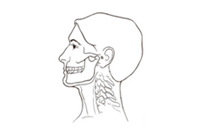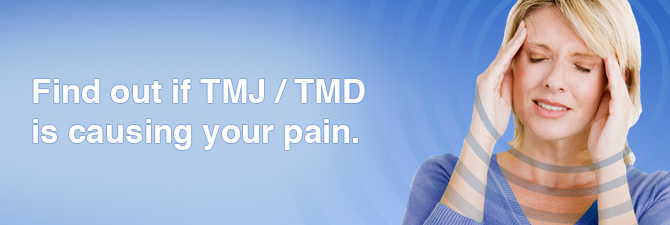San Antonio, Texas
Painful headaches and migraines are a common symptom of temporomandibular joint disorder (TMJ/TMD). However, it can be hard to diagnose this condition without taking into account other symptoms, as many factors can lead to a migraine.
TMJ-related headaches generally start at:
- the jaw or temporomandibular joint
- the forehead area
- the back of the neck
- behind the eyes
and then spreads over the rest of your head. If you are prone to migraines to begin with, TMJ can increase the frequency and severity of your attacks.
One way you may be able to differentiate between a non-TMJ headache and a TMJ-influenced one is by additional symptoms. A TMJ migraine will rarely, if ever, exist without at least one other symptom associated with this type of disorder. Here are other symptoms to be aware of:
- Pain in the jaw joint
- Clicking or popping in your jaw joint
- Neck, shoulder or back pain
- Numbness or tingling in your arms
- Ringing in your ears or hearing loss
- Sensitive or loose teeth
- Difficulty chewing or opening and closing your mouth
- Limited jaw movement or “lockjawâ€
Because a TMJ migraine is the result of a misaligned jaw joint, you will usually experience some type of discomfort or unusual sound in your jaw. A migraine related to TMJ is usually accompanied by other symptoms for several reasons:
Inflammation of the trigeminal nerve: The nerve most impacted by TMJ is the trigeminal nerve, which controls all functions of your teeth and jaw. This nerve is also responsible for nearly 40 percent of all brain processing functions. The brain interacts frequently with the trigeminal nerve, which is also connected to the nerves that control your:
- Face
- Hands
- Head
- Neck
- Throat
- Tongue
Therefore, any inflammation to this nerve will have a domino effect on these other areas of your body.
Jaw misalignment: Another source of pain may be that you jaw is misaligned and the condyles, disc, muscles, ligaments and base of the skull are not working correctly. This leads to pain, and pain leads to TMJ migraines.
Tense facial and head muscles: Sometimes the source of TMJ migraines simply arises from tension in your facial and head muscles, caused by an imbalance in your jaw joint and muscles.
Generally speaking, a TMJ migraine results from a number of jaw joint malfunctions. If you are suffering from a severe headache or any other TMJ symptoms, you should contact Dr. Brian Hale today. We can help you ease the pain of a TMJ-caused headache. Please contact our San Antonio office today to schedule your initial consultation.

Describe Your TMJ
Printable Form (PDF)
To help us better understand your specific pain points and determine the ideal treatment, please print this form. Circle all symptoms that apply to you and bring it to your TMJ consultation.



